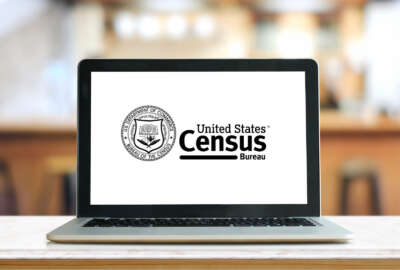
Census adds bug bounty, ‘red team’ testing to 2020 cybersecurity arsenal
The Census Bureau will join a growing number of agencies in offering a bug bounty program as it ramps up security preparations for the 2020 population count.
The Census Bureau will join a growing number of agencies in offering a bug bounty program as it ramps up security preparations for the 2020 population count.
Atri Kalluri, the head of the decennial information technology division, said Friday that the agency recently completed “red team” testing, where staff playing the role of malicious hackers added fraudulent responses in a copy of its 2018 field test data.
The exercise aims to test the accuracy of the Census Bureau’s self-response quality assurance system, which is supposed to flag suspicious incoming data.
The Department of Homeland Security will coordinate with the intelligence community and industry partners to launch census-specific threat support “similar to what was provided during the recent elections,” Kalluri said at the Census Program Management Review.
“DHS will conduct penetration tests on technology and go further with a red team assessment to evaluate the collective security of the people, processes and technologies of 2020 systems,” he added
The agency expects to complete its review of the red-team exercise data later this month, and will provide an analysis of the results in March.
Earlier this week, Ron Jarmin, the Census Bureau’s deputy director, had warned of the threat of a disinformation campaign amid the 2020 count.
Steven Dillingham, the agency’s new director, told staff he has pledged to oversee the challenges of the decennial count with “the most professionalism and integrity possible.”
“We are engaged in efforts to ensure that this will be a greatly enlarged workforce that will be ready, willing and able to accomplish the mission of the 2020 census — to count everyone once, only once and in the right place,” Dillingham said.
2020 count operations ‘uninterrupted’ by shutdown
The Census Bureau’s decennial operations remained unscathed during the 35-day partial government shutdown.
Last year, Congress provided nearly $1 billion in “forward funding” for the decennial count operations in fiscal 2019, Al Fontenot, the associate director of decennial census programs, said.
With this funding, the agency estimated it could have kept operating during a shutdown six-to-eight weeks after Jan. 1.
“This carryover funding allowed us to maintain 2020 census operations uninterrupted throughout the lapse in funding,” he added. “As a result, every office that is doing work on the 2020 census was able to continue that work.”
Contractors working on decennial operations also continue their work uninterrupted during the shutdown.
Census remains in the process of reviewing its lifecycle cost estimate, but Fontenot said the projected $15.6 billion lifecycle cost for the 2020 count has not changed.
“Various elements within the cost estimate are up and down, but the total lifecycle cost estimate is within the bounds that were originally set,” he said.
Census prepares for in-field operations
The Census Bureau on Jan. 7 began standing up the first wave of field offices that will serve as command posts for address canvassers and enumerators. Of the 39 field offices selected for that first wave, 18 are now open.
The agency has also added more than 100,000 applications for temporary census workers into its payroll system for the decennial count, “about 10 times” more than what Census expected to have at this point in time, Fontenot explained.
Census technically fell short of its hiring goal for community partnership specialists, which assist in counting harder-to-reach populations. As of Feb. 1, the agency has hired 397 specialists, but expected to have 473 onboard.
However, Fontenot clarified that an additional 125 people who have been offered a position or accepted the position are still waiting for clearance.
“Our challenge is not getting people to apply, it’s just getting them through the system,” Fontenot said.
At peak operations, Census expects to have hired more than 1,500 specialists working out of six regional hubs.
This summer, the Census Bureau will test to see whether adding a citizenship question to the 2020 forms will have an impact on response rates.
The citizenship question has appeared on the American Community Survey, which goes out to about 3.5 million people in the United States.
“We know it works in its current form. However, we have limited empirical evidence about the impact the question might have in the decennial environment,” Victoria Velkoff, the associate director of demographic programs, said.
The test, she added, would not determine whether or not to include the question for the 2020 count, but would help gauge the amount of follow-up work enumerators will need to carry out in 2020.
Friday’s meeting marked the agency’s final quarterly update on decennial preparations. Starting on April 1, exactly one year out from the 2020 count, the agency will provide more frequent “operational updates.”
Copyright © 2025 Federal News Network. All rights reserved. This website is not intended for users located within the European Economic Area.
Jory Heckman is a reporter at Federal News Network covering U.S. Postal Service, IRS, big data and technology issues.
Follow @jheckmanWFED
Related Stories




